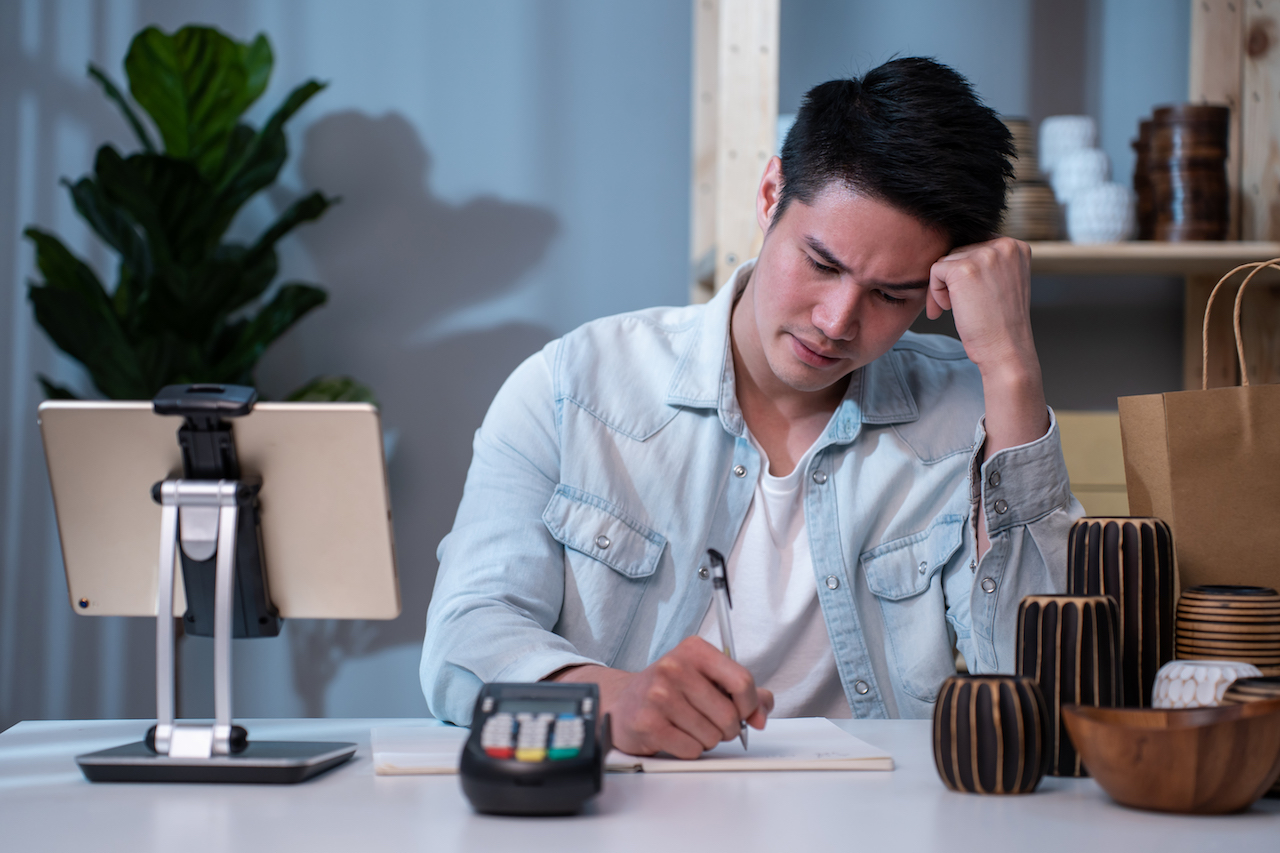Can’t pay your tax bill? Don’t worry. There are some steps you can take, whatever the issue you’re facing.
If you can’t pay your tax bill for financial reasons, this post will explore the help and support that’s available. But first, we’ll look at some other issues that may cause you to miss your tax deadline.

Can’t Log Into Self-Assessment
Obviously you won’t be able to pay HMRC if you cannot sign into their service. If you’ve lost your user ID or password, you can contact HMRC for new login details. If you enter the wrong user ID or password five times in a row, HMRC will lock you out of your account. If this happens, just be patient: Your account will unlock after two hours.
But if you have your login details and you still cannot access the self-assessment system, then there might be a problem with the service itself. You can check for any service availability and other tech issues here.
And remember: You don’t have to do your taxes online. If you’re having internet issues of your own, there are other ways to pay your self-assessment tax bill.
What You Need to Pay Your Self-Assessment Tax Return
If you want to pay your self-assessment tax return by bank transfer – whether that’s by Faster Payments, CHAPS or Bacs – you’ll need your 11-character payment reference. This is just your 10-digit UTR, followed by the letter K.
Head here to read our guide to getting your UTR number.
Where to Find HMRC Bank Details
If you want to pay HMRC by an online or telephone bank transfer, you must make sure you send your money to the right place. Your tax bill should tell you which account to pay into. But you’ll find all the necessary HMRC bank details here. This page also lists the BIC and IBAN information to use, if your account is overseas.
What If You Can’t Pay Your Tax Bill?
If you miss your tax deadline, HMRC will give you a penalty charge, and they may also add interest to your tax bill. So if you’ve missed a tax deadline, or you expect you won’t be able to pay your bill on time, contact HMRC as soon as you can.
You may still have to pay your late penalty, and any interest on your bill. But if you explain the situation and make arrangements to pay as soon as possible, you can at least avoid accruing any further penalties or interest.
What If You Can’t Pay Your Tax Bill in Full?
If you cannot afford to pay your tax bill in full, contact HMRC as soon as you can. You may be able to pay your tax bill in instalments. This is called a Time to Pay arrangement.
There’s certain criteria you’ll have to meet before you’re allowed to make Time to Pay arrangement. For example, with a self-assessment tax return, you must owe less than £30,000, and you must be in a position to pay off your debt in full within the next 12 months, or less.
When you contact HMRC, they’ll ask you to specify how much you can repay each month. You may have to tell them how much money you earn each month, along with details about how much you usually spend on bills, food, and entertainment. HMRC may also ask you about any savings or investments you might have, as they’ll expect you to use these to reduce your tax bill as much as possible.
Head here to read the full HMRC guidance on Time to Pay arrangements.
What Happens If You Don’t Tell HMRC You Can’t Pay Your Bill?
One thing you should never do if you can’t pay your tax bill in full: Ignore the situation. If you don’t contact HMRC, or if you can’t agree on an instalment plan, then HMRC may take action against you. They may use a debt collection agency, or they may take things you own and sell them to cover your bill. They might even take money directly from your bank account or building society.
In some cases, HMRC may take you to court or make you bankrupt. And if you’re struggling to pay your business tax, they may even close down your company.
So in short, if you cannot or will not pay your tax, HMRC will go to great lengths to ensure you pay what you owe. Head here to read a full guide to the actions HMRC can take to recover tax.
Tax Advice for Self-Employed Workers
Tax can be confusing – especially if you’re new to the world of self-employment and self-assessment. That’s why we created a detailed guide to tax for self-employed workers.
It covers how much you need to earn to pay tax, while explaining how and when to file a tax return, if you’ve never done it before.
Our guide also links to various additional resources, for advice on allowable expenses, what records you should keep, and how legal insurance can cover you against potential HMRC investigations.
Head here to read our guide to tax for self-employed workers.
Has your business been impacted by Covid?
If your business has been financially impacted by the Covid pandemic or you’re just looking for up to date information, there is support available to help you.
Useful links:
Claiming financial support under the test and trace support payment scheme
General information and updates on the
Covid pandemic from the Government

